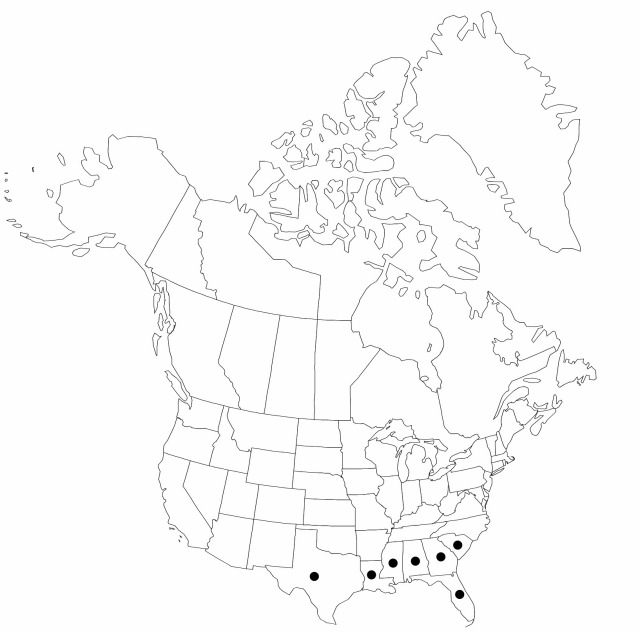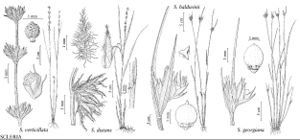Scleria baldwinii
Syn. Pl. Glumac. 2: 175. 1855.
Plants perennial, sometimes cespitose; rhizomes horizontal, nodulose. Culms stout, 30–90 cm, base smooth or slightly scabrous distally. Leaves: sheaths purple or brownish, tight, smooth or weakly ribbed, narrowly winged, glabrous; contra-ligules minute, obtuse; blades linear, keeled, shorter than culms, 1–5 mm wide, rigid, glabrous or slightly scabrous on margins. Inflorescences 1–2 cm; clusters 1, 5–15 mm wide, each with 3–7 spikelets; bracts subtending inflorescence awl-shaped, 4–15 cm × 1–4 mm. Spikelets bisexual and staminate, 5–10 mm; staminate spikelets many flowered; staminate scales lanceolate, membranous, pistillate scales ovate-acuminate, rigid. Achenes dull white or often brownish gray or with dark gray bands, obscurely trigonous, ovoid-globose, 3–4 mm, smooth, often ribbed, base without pores, sides concave between angles, distinctly trigonous, pointed, apex conspicuously mucronate; hypogynium obsolete, reduced to small brownish ring just distal to pointed base.
Phenology: Fruiting spring–summer.
Habitat: Wet, peaty or sandy soils in pinelands, savannas, and borders of ponds and lagoons
Elevation: 0–100 m
Distribution

Ala., Fla., Ga., La., Miss., S.C., Tex., West Indies (Bahamas, Cuba).
Discussion
Selected References
None.
